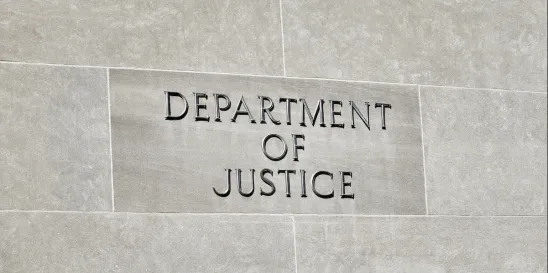In January 2023, the Criminal Division of the Department of Justice (DOJ) announced revisions to its Corporate Enforcement Policy (CEP), which we previously summarized here and discussed in further detail as part of EnforceMintz. The CEP defines the criteria that DOJ uses to decide whether to decline to prosecute a criminal case. Specifically, under the CEP, declination of criminal prosecution is presumed where a company (1) voluntarily self-discloses misconduct, (2) fully cooperates, and (3) timely and appropriately remediates. However, we are aware of only two health care enforcement actions that were resolved via a non-prosecution agreement (NPA) or deferred prosecution agreement (DPA) this past year, and neither resolution satisfied all three criteria for presumed declination under the CEP.
In January 2023, the United States Attorney’s Office for the Eastern District of Missouri (the “US Attorney”) entered into an NPA with Great Circle, a Missouri-based nonprofit provider of behavioral health services to minor children in the custody of the Missouri Department of Social Services. At the same time, Great Circle entered into a civil settlement agreement with DOJ in which Great Circle agreed to pay $1.8 million to resolve alleged False Claims Act (FCA) violations. The NPA, together with the concurrent civil settlement, resolved health care fraud and FCA claims based on allegations that Great Circle (1) made false statements to the state agency regarding the residential treatment services provided to children, and (2) billed the state for services that either were not provided or were provided without conforming to required contractual conditions.
The US Attorney considered the following factors in entering into the NPA: (a) the parties entered into a civil settlement agreement; (b) Great Circle is a nonprofit company and a criminal conviction could cause “hardship to innocent third-parties”; (c) Great Circle had no prior criminal history; (d) Great Circle cooperated and made witnesses available for interviews; (e) Great Circle committed to implementing a corporate compliance program approved by the US Attorney’s Office; and (f) Great Circle agreed to continue to cooperate with the US Attorney’s investigation. The NPA, which carried a three-year term, did not impose a criminal penalty. Notably, the NPA did not state whether Great Circle voluntarily self-disclosed the misconduct, giving rise to the NPA and civil settlement. The NPA also did not require Great Circle to submit to a monitorship.
In March 2023, DOJ and multiple US Attorneys’ Offices entered into a DPA with Genotox Laboratories Ltd. (Genotox). The company allegedly paid independent sales representatives on commission for marketing the company’s drug testing services and used standing orders or “Custom Toxicology Profiles” with pre-selected tests generally in the highest reimbursement categories, regardless of whether those tests were medically necessary. The DPA resolved the criminal investigation into Genotox for alleged violations of the Anti-Kickback Statute (AKS) and the Eliminating Kickbacks in Recovery Act. In connection with the DPA, Genotox also entered into a FCA civil settlement agreement in which it agreed to pay at least $5.9 million to resolve civil FCA claims arising from AKS violations based on the same alleged conduct.
The Genotox DPA was effective for an 18-month term. DOJ explained that its decision to defer prosecution was based upon Genotox’s cooperation with the investigation, remedial measures to end the use of “custom profiles” and commission-based compensation, the company’s enhanced compliance program, the seriousness of the company’s conduct, Genotox’s lack of criminal history, and the company’s agreement to continue to cooperate in DOJ’s investigation. DOJ also determined that an independent compliance monitor was not necessary as part of the DPA. Notably, the DPA explained that Genotox did not receive voluntary disclosure credit because it “did not voluntarily and timely disclose” the alleged conduct.
The Great Circle and Genotox resolutions lead to two important takeaways for health care companies under criminal investigation. First, DOJ’s CEP policy aims to encourage corporate self-disclosure through the presumption of declination. But as the two examples from this past year show, it is unclear how often, and under what circumstances, DOJ will actually put that policy into practice and decline or defer prosecution. Second, the Great Circle and Genotox resolutions show that obtaining an NPA or a DPA is possible even if the company under investigation does not receive full credit for voluntary disclosure. Nevertheless, consistent with CEP guidance, companies under investigation seeking an NPA or DPA should consider the potential benefits of self-disclosure, cooperation, and remediation of any potential wrongful conduct.






 />i
/>i

